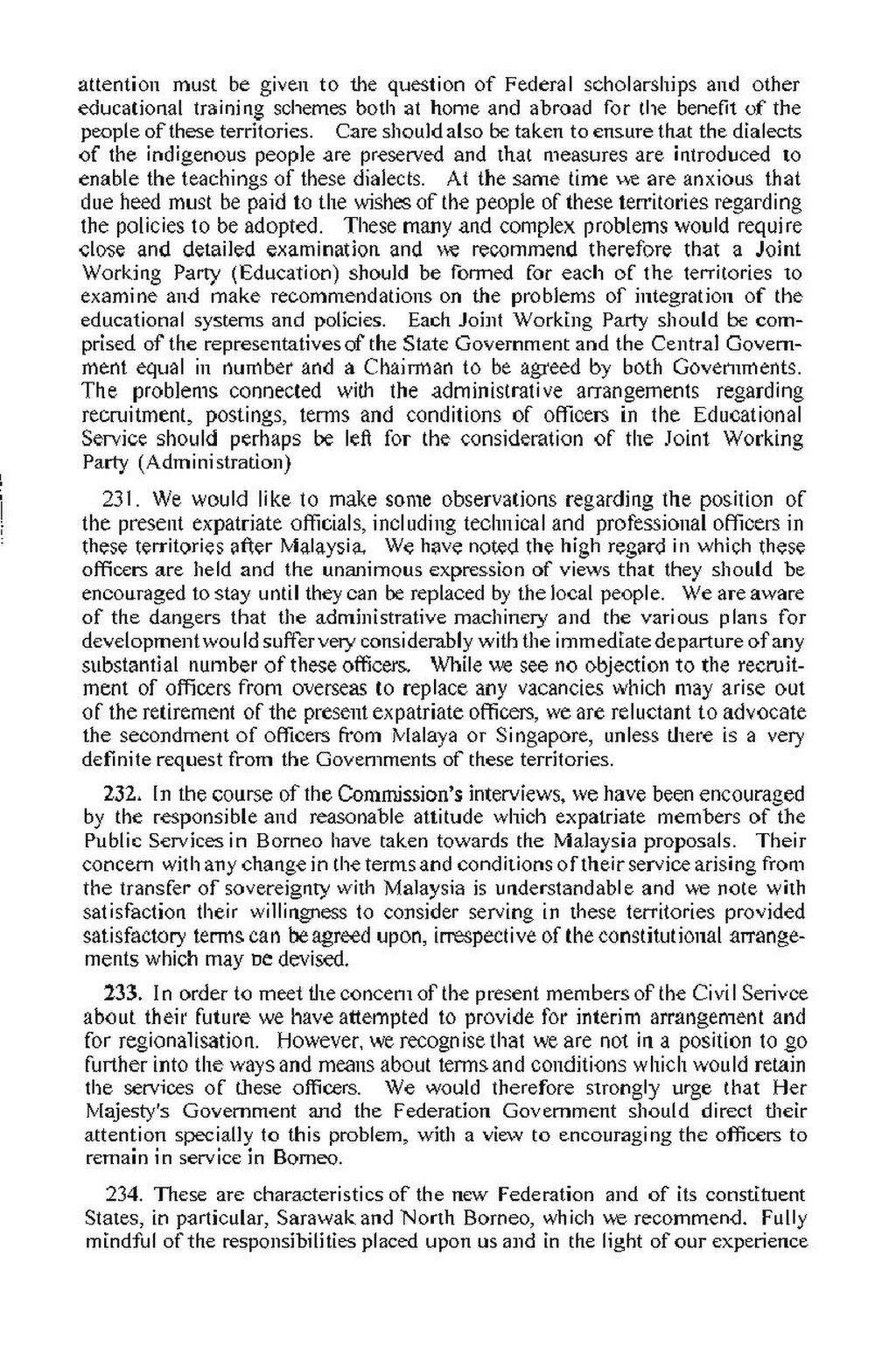attention must be given to the question of Federal scholarships and other educational training schemes both at home and abroad for the benefit of the people of these territories. Care should also be taken to ensure that the dialects of the indigenous people are preserved and that measures are introduced to enable the teachings of these dialects. At the same time we are anxious that due heed must be paid to the wishes of the people of these territories regarding the policies to be adopted. These many and complex problems would require close and detailed examination and we recommend therefore that a Joint Working Party (Education) should be formed for each of the territories to examine and make recommendations on the problems of integration of the educational systems and policies. Each Joint Working Party should be comprised of the representatives of the State Government and the Central Government equal in number and a Chairman to be agreed by both Governments. The problems connected with the administrative arrangements regarding recruitment, postings, terms and conditions of officers in the Educational Service should perhaps be left for the consideration of the Joint Working Party (Administration)
231. We would like to make some observations regarding the position of the present expatriate officials, including technical and professional officers in these territories after Malaysia. We have noted the high regard in which these officers are held and the unanimous expression of views that they should beencouraged to stay until they can be replaced by the local people. We are aware of the dangers that the administrative machinery and the various plans for development would suffer very considerably with the immediate departure of any substantial number of these officers. While we see no objection to the recruitment of officers from overseas to replace any vacancies which may arise out of the retirement of the present expatriate officers, we are reluctant to advocate the secondment of officers from Malaya or Singapore, unless there is a very definite request from the Governments of these territories.
232. In the course of the Commission's interviews, we have been encouraged by the responsible and reasonable attitude which expatriate members of the Public Services in Borneo have taken towards the Malaysia proposals. Their concern with any change in the terms and conditions of their service arising from the transfer of sovereignty with Malaysia is understandable and we note with satisfaction their willingness to consider serving in these territories provided satisfactory terms can be agreed upon, irrespective of the constitutional arrangements which may be devised.
233. In order to meet the concern of the present members of the Civil Serivce about their future we have attempted to provide for interim arrangement and for Regionalisation. However, we recognise that we are not in a position to go further into the ways and means about terms and conditions which would retain the services of these officers. We would therefore strongly urge that Her Majesty's Government and the Federation Government should direct their attention specially to this problem, with a view to encouraging the officers to remain in service in Borneo.
234. These are characteristics of the new Federation and of its constituent States, in particular, Sarawak and North Borneo, which we recommend. Fully mindful of the responsibilities placed upon us and in the light of our experience
